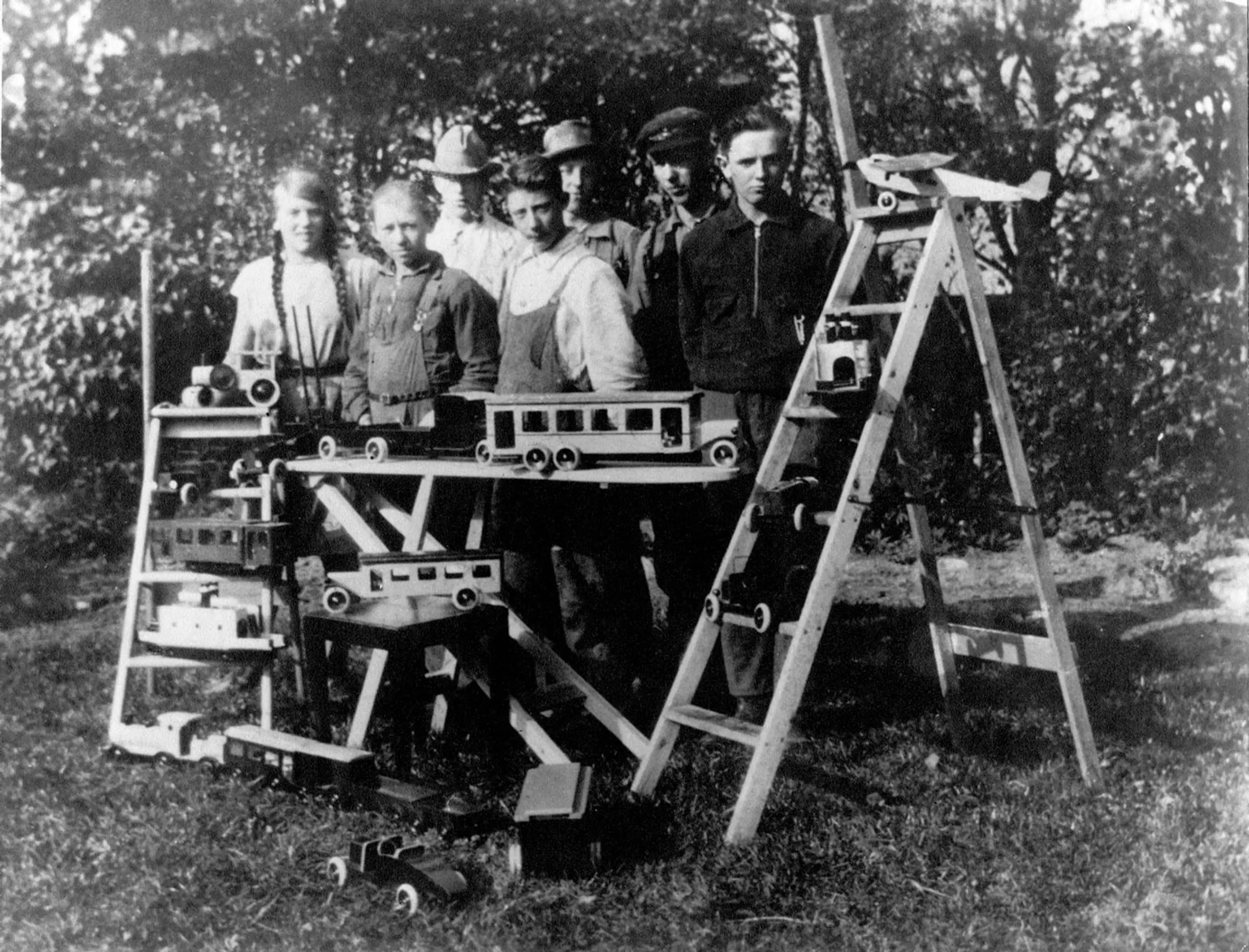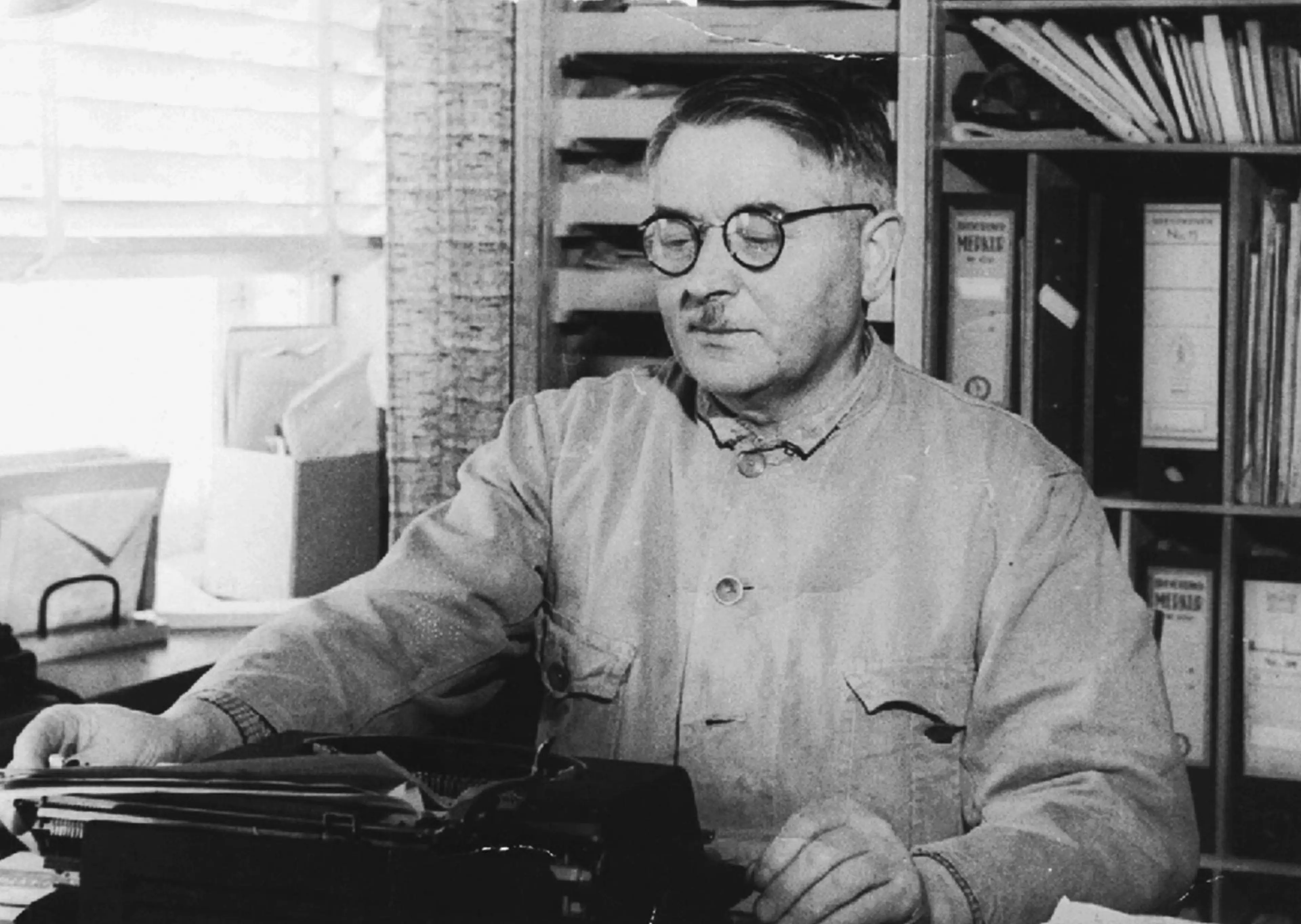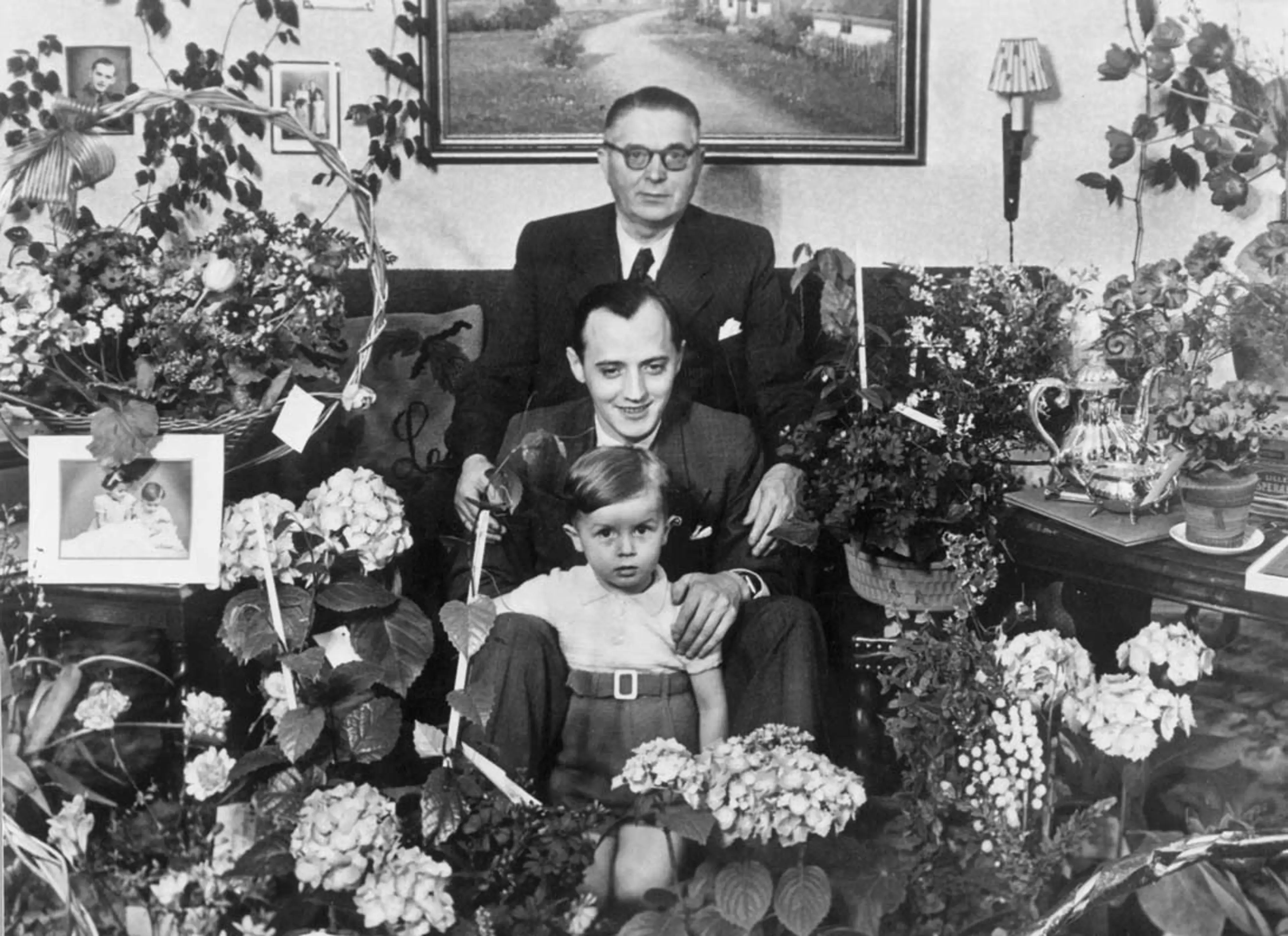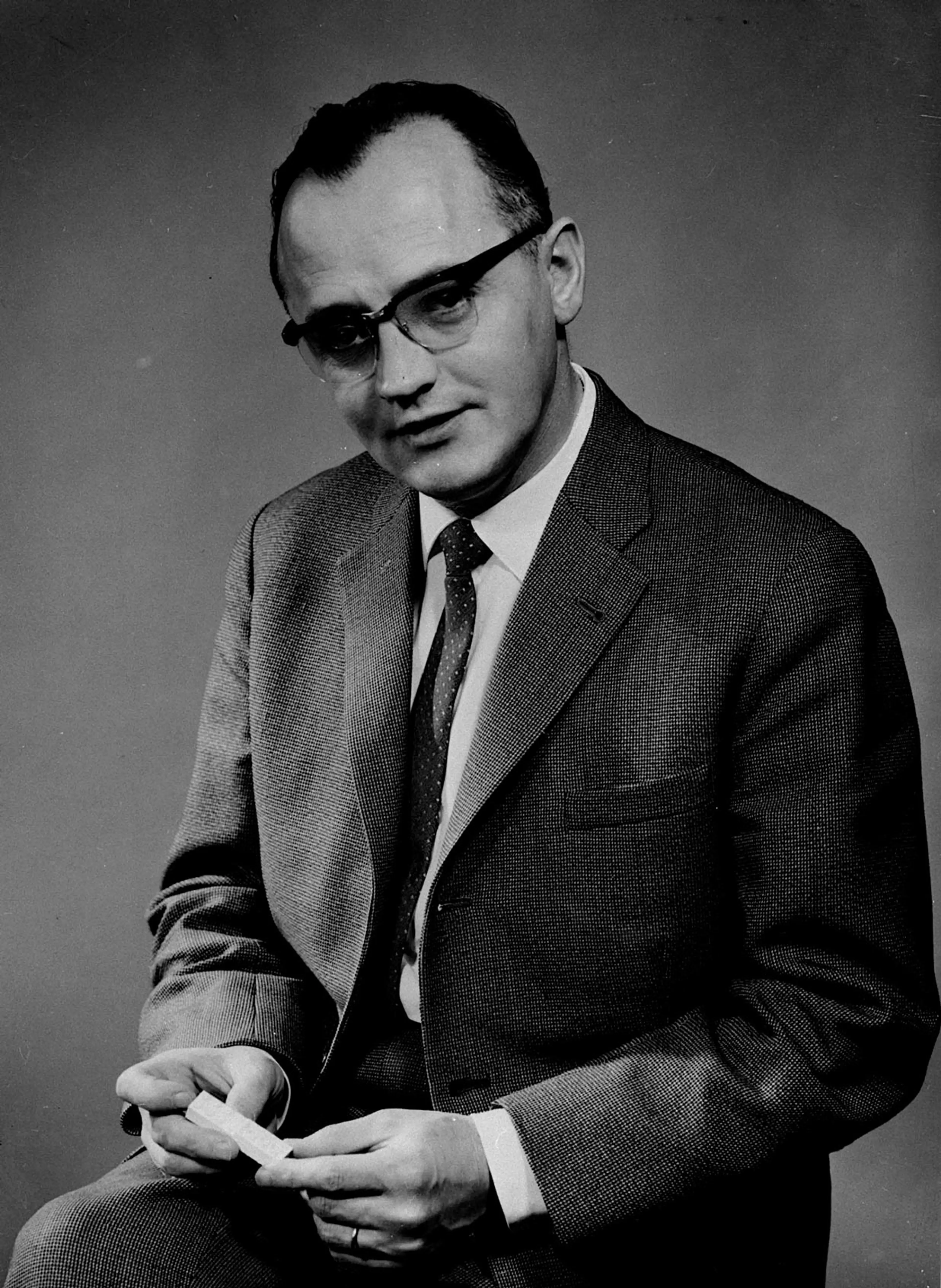On February 1, 1916, at the age of 24, Ole Kirk Kristiansen buys Billund Maskinsnedkeri (Billund Woodworking and Carpentry Shop) for DKK 10,000. At the time, Billund is a community consisting of a handful of small farms and smallholdings/crofts, grocery shop, dairy, blacksmith, inn, mission hall, school, co-operative shop - and a joinery factory. Ole Kirk also marries Kristine Sørensen in 1916, and the couple later have four children: Johannes, Karl Georg, Godtfred and Gerhardt.
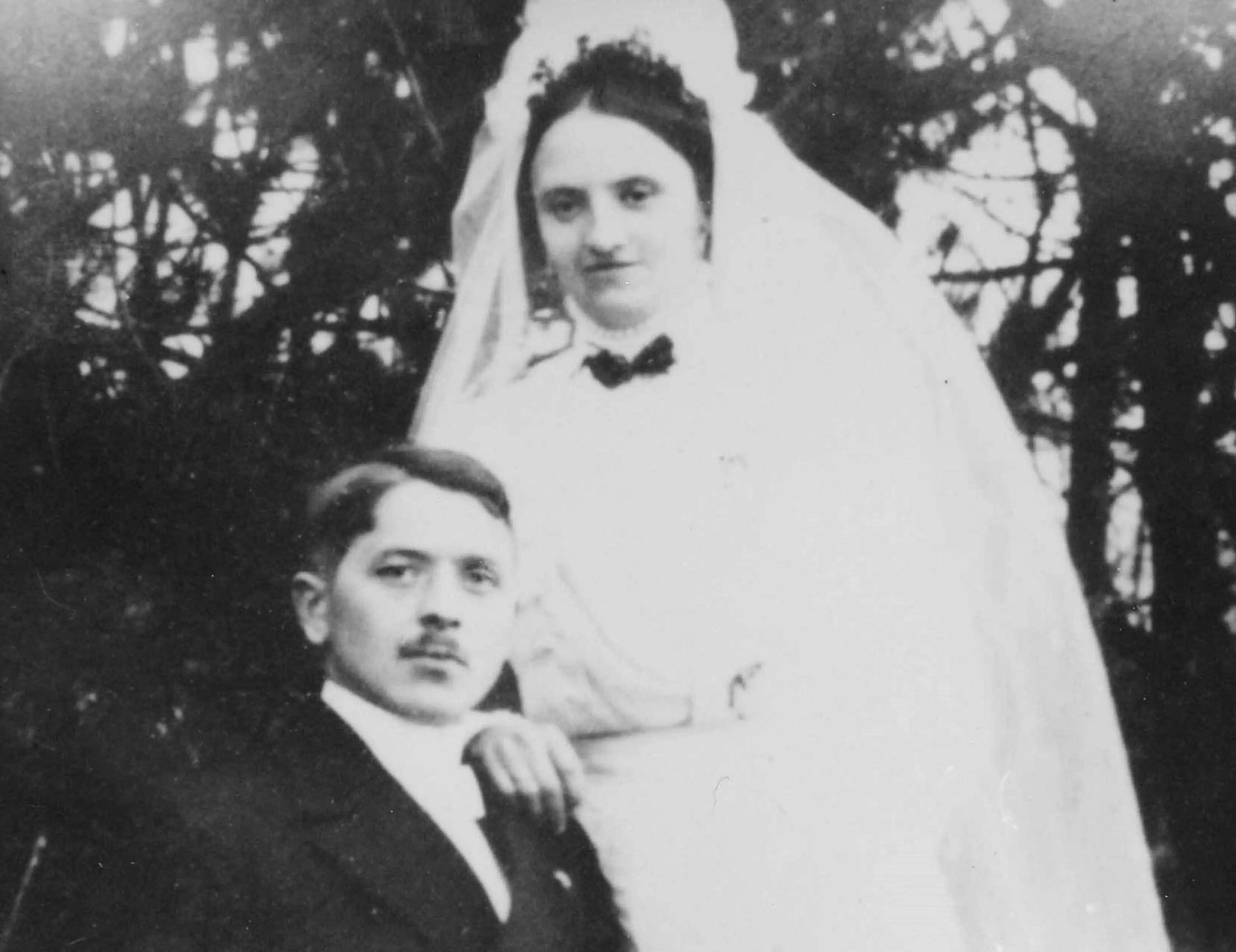
Ole Kirk Kristiansen and Kristine Sørensen at their wedding in 1916
Billund Woodworking and Carpentry Shop
The woodworking shop produces doors, windows, kitchen cabinets, cupboards, coffins, chests of drawers, tools for digging peat, and bodywork for carts. All of first-class quality craftsmanship – which is important to Ole Kirk.
Ole Kirk also builds other larger projects – houses, farm buildings, the dairy at Billund and at Randbøl, mission halls and a new gallery for Grene Church. He wins the contract to build the church in Skjoldberg, a project which returns very little profit to which Ole Kirk says: Oh well - it was for a good cause.
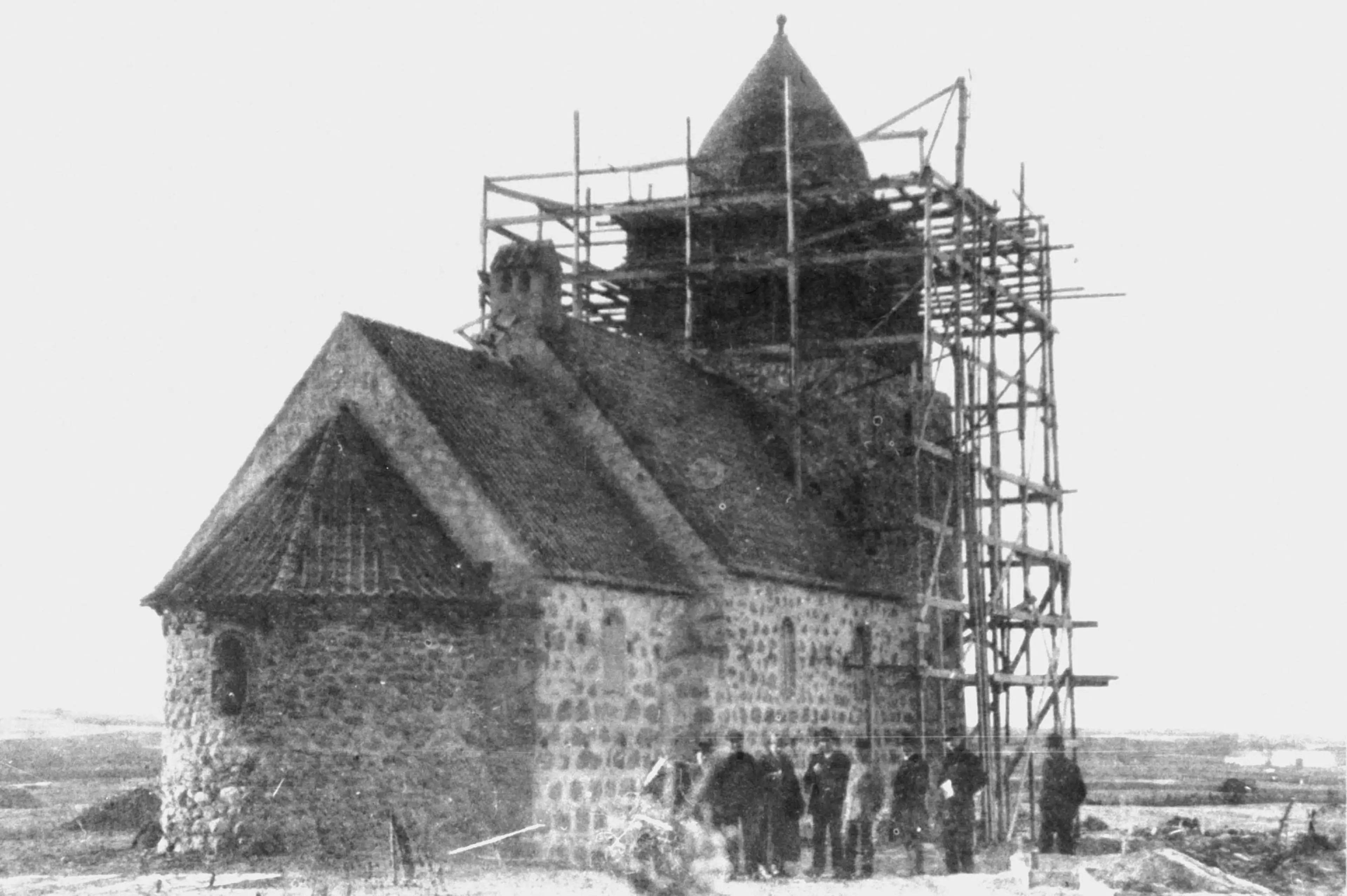
Skjoldbjerg Church
Faith and involvement in the local community
Ole Kirk is an active member of the local community and he lives his life according to simple basic principles, which to a high degree derives from his Christian faith: to look after what has been granted to him as well as possible. An attitude he has brought with him from childhood.
He is a frequent visitor to the Mission Hall in Billund, teaches youngsters at the local handicrafts school, and is on the board of Billund Generating Station, which he helped to build in 1917. He is heavily engaged in the Sunday school as well as in YMCA and YWCA and supports the Herrnhutt congregation in Christiansfeld.
Together with his wife, Kristine, Ole Kirk is a member of the Church Association for the Inner Mission, which is a well-established movement in the frugal community. Faith, combined with determination, hard work, courage and optimism, helps Ole Kirk Kristiansen survive when times are hard both personally and economically.
Workshop and family home in flames
On Sunday, April 27, 1924, while Ole Kirk and his wife Kristine are taking an afternoon nap, their sons Godtfred (4) and Karl Georg (5) are playing in the workshop. The two boys try to light a fire in the glue heater and – by accident – they also set fire to some wood shavings. Very quickly the building is in flames. Fortunately no one is injured – but both workshop and home burn to the ground. Godtfred Kirk Christiansen has later said that his first “achievement” was to burn the workshop and house down.
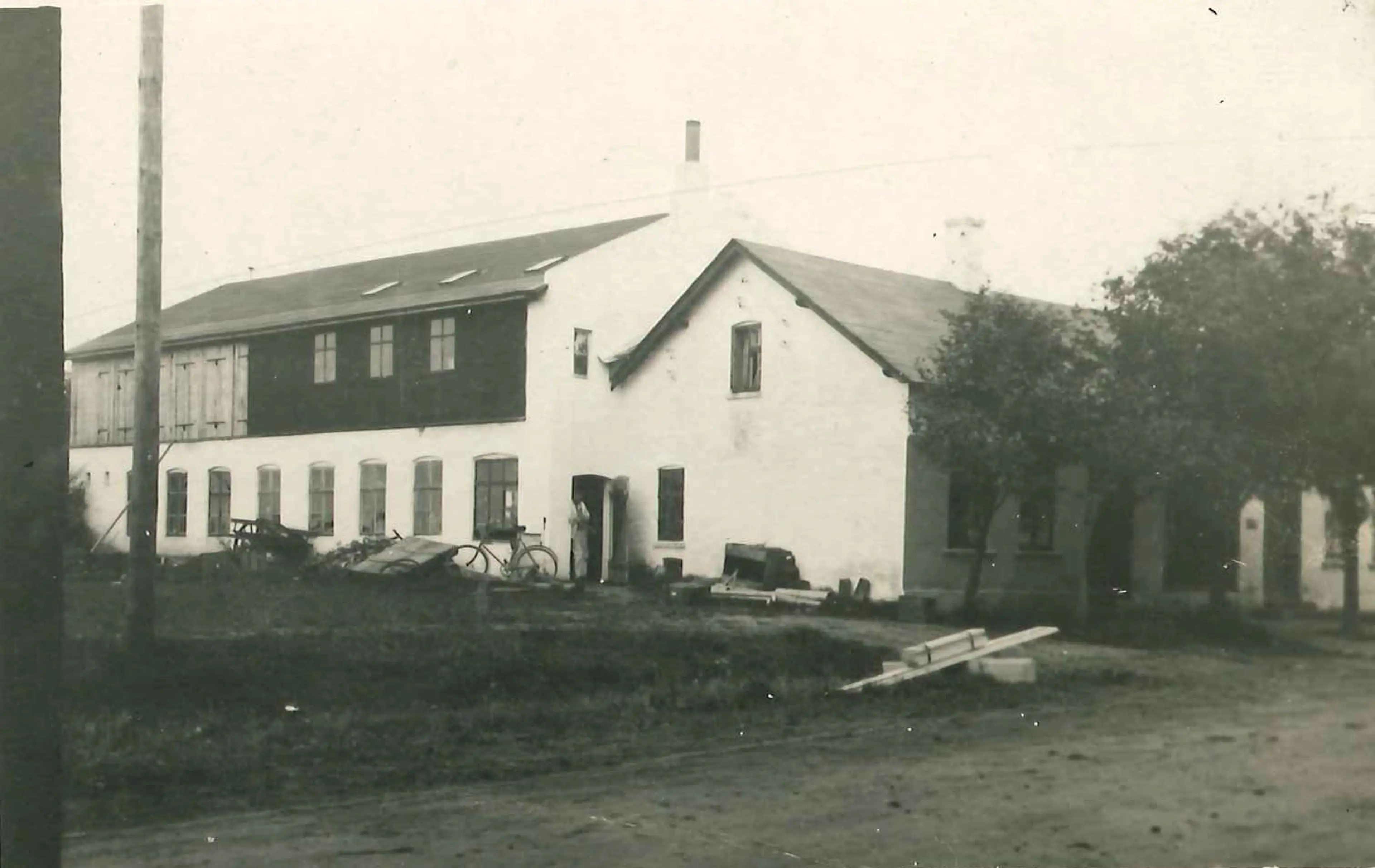
The house and workshop that was destroyed by fire
The building of a new home
Ole Kirk Kristiansen invites Architect Jesper Jespersen to draw up plans for the family’s new home. He does so in the Better Building Practices style, a leading Danish style of architecture during the period 1915-1940, recognizable from its well-composed facades, front dormers flush with the facade, hipped pitched roof, and a finely worked main door. All of these elements are still present today in the house now known as Ole Kirk’s house.
To highlight the focus on quality craftsmanship Ole Kirk lays a concrete sidewalk. It is the only sidewalk in Billund at the time. He also has two distinctive lion figures placed at the entrance.
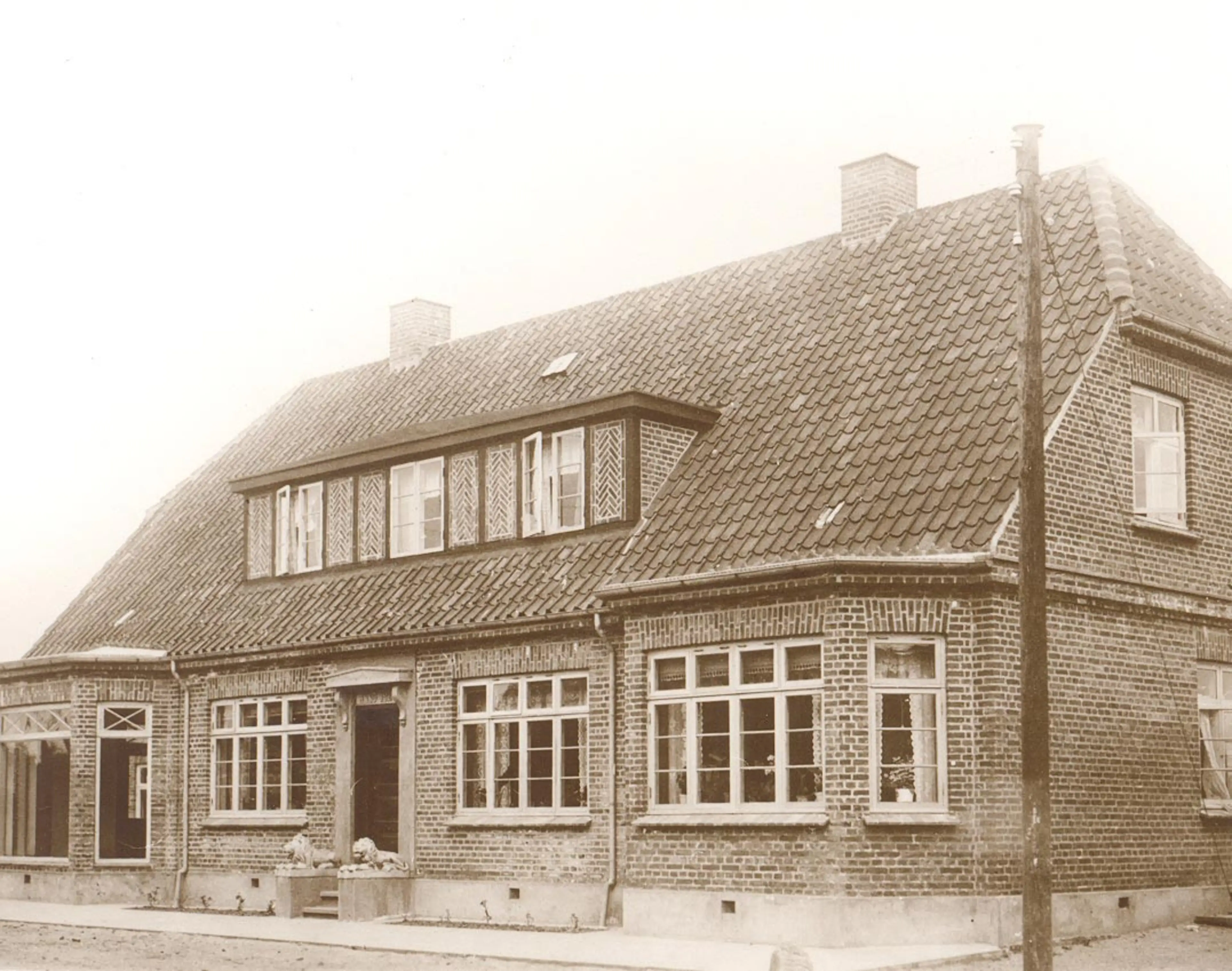
Ole Kirk Kristiansen rebuilds his family home into this house in 1924


